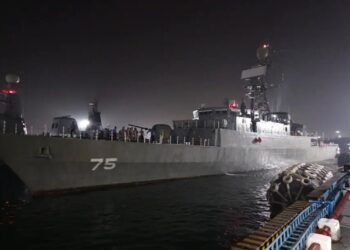Zoram People’s Movement gains majority control in a major political turnaround in tribal south Mizoram in the Chakma Council by ending BJP’s four-month rule.
BY PC Bureau
In a sharp political reversal, the BJP’s first-ever rule in the Chakma Autonomous District Council (CADC) has collapsed just four months after it began. On Monday, Chief Executive Member (CEM) Molin Kumar Chakma was ousted through a no-confidence motion in a special session called by council chairman Lakkhan Chakma.
The motion, moved by Zoram People’s Movement (ZPM) leader Doymoy Daveng Chakma, cited a loss of majority support. Of the 17 members who voted, 15 backed the motion, with one opposed and one abstention (MNF). The ZPM now commands 16 of the 20-member council, with the BJP reduced to just two and MNF holding one. One seat is vacant following the death of a BJP member in April.
This marks a major political setback for the BJP, which had formed its maiden CADC executive committee on February 4. The council, headquartered in Kamalanagar in Mizoram’s Lawngtlai district, exercises significant administrative control over local governance, development funds, land management, and customary laws for the Chakma tribal population under the Sixth Schedule of the Constitution.
READ: India Overtakes Pakistan in Nukes; China Way Ahead: SIPRI
The defection of 12 BJP members to ZPM earlier this month was key to the fall. For the BJP, losing the CADC means not only diminished political presence in the region but also a loss of influence over development projects and tribal welfare schemes in a strategically sensitive border district.
The ZPM, which has been gaining ground in Mizoram’s local politics, is now in full control of the CADC and is expected to nominate a new CEM shortly.
Why This Matters: Understanding CADC’s Powers and Finances
The CADC, based in Kamalanagar in south Mizoram’s Lawngtlai district, is one of three autonomous district councils in the state, constituted under the Sixth Schedule of the Indian Constitution. It governs the Chakma-inhabited areas and has sweeping powers over:
- Legislation: Can make laws on land, forests, water, shifting cultivation, village administration, inheritance, social customs, etc.
- Administration: Direct control over local education, public health, and tribal welfare.
- Taxation: Authority to collect certain local taxes and levies.
- Judicial powers: Operates village courts for customary dispute resolution.
READ: “Get Out of Tehran”: Trump’s Chilling Warning as He Cuts G7 Visit Short
Funding and Political Significance
The CADC receives funds from:
- State government grants
- Central allocations under Article 275(1) for tribal development
- Finance Commission devolution
- Schemes like BADP, NEC, and CSS programs (Border Area Development, North Eastern Council, and Centrally Sponsored Schemes)
Control over the CADC provides influence over how these funds—running into tens of crores annually—are distributed across critical tribal welfare programs, roads, schools, and local infrastructure.
The BJP’s loss comes at a time when it was hoping to consolidate support among border communities and ethnic minorities, especially ahead of 2028 state polls. The defection of 12 of its members to ZPM reflects deep discontent within party ranks and a failure to hold the fragile alliance together.
The ZPM, which has grown steadily across Mizoram, now has full administrative command over the CADC and is expected to name a new Chief Executive Member this week.














